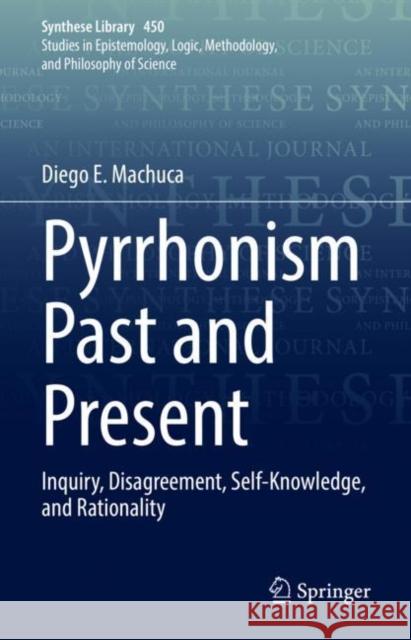Pyrrhonism Past and Present: Inquiry, Disagreement, Self-Knowledge, and Rationality » książka
Pyrrhonism Past and Present: Inquiry, Disagreement, Self-Knowledge, and Rationality
ISBN-13: 9783030912093 / Angielski / Twarda / 2022 / 302 str.
Pyrrhonism Past and Present: Inquiry, Disagreement, Self-Knowledge, and Rationality
ISBN-13: 9783030912093 / Angielski / Twarda / 2022 / 302 str.
(netto: 421,70 VAT: 5%)
Najniższa cena z 30 dni: 424,07
ok. 16-18 dni roboczych.
Darmowa dostawa!
This book explores the nature and significance of Pyrrhonism, the most prominent and influential form of skepticism in Western philosophy. Not only did Pyrrhonism play an important part in the philosophical scene of the Hellenistic and Imperial age, but it also had a tremendous impact on Renaissance and modern philosophy and continues to be a topic of lively discussion among both scholars of ancient philosophy and epistemologists. The focus and inspiration of the book is the brand of Pyrrhonism expounded in the extant works of Sextus Empiricus. Its aim is twofold: to offer a critical interpretation of some of the central aspects of Sextus’s skeptical outlook and to examine certain debates in contemporary philosophy from a neo-Pyrrhonian perspective. The first part explores the aim of skeptical inquiry, the defining features of Pyrrhonian argumentation, the epistemic challenge posed by the Modes of Agrippa, and the Pyrrhonist’s stance on the requirements of rationality. The second part focuses on present-day discussions of the epistemic significance of disagreement, the limits of self-knowledge, and the nature of rationality. The book will appeal to researchers and graduate students interested in skepticism.











